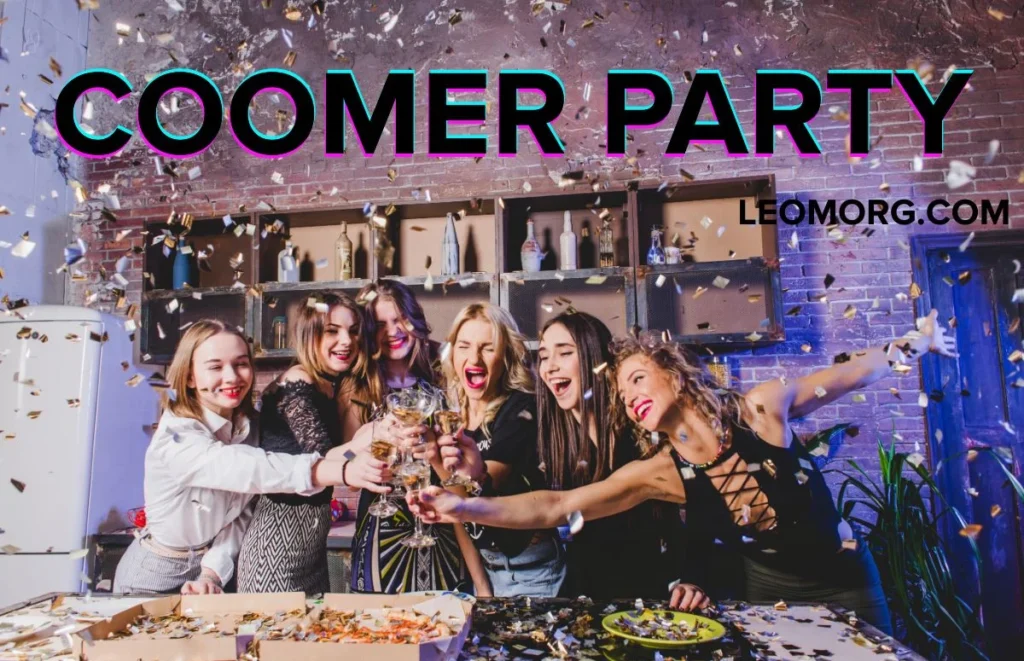Introduction
The internet is a vast, ever-evolving landscape where memes play a significant role in shaping culture and conversation. One such phenomenon that has gained traction in recent years is the “Coomer/Party” meme. But what exactly does this term mean, and why is it important to understand it? Let’s dive deep into the origins, impact, and cultural significance of the “Coomer/Party” meme.
Origins of the Coomer Meme
The “Coomer” meme first appeared on internet forums around 2018. It depicts a stereotypical character, often a male, who is depicted as being overly obsessed with consuming adult content. The term “Coomer” is derived from the slang word “coom,” a humorous onomatopoeia representing the sound of ejaculation. Over time, this character became a symbol of excessive online consumption and addiction, resonating with many internet users who recognized elements of their own behavior in the exaggerated portrayal.
Defining Coomer
A Coomer is typically characterized by certain traits: a disheveled appearance, obsessive behavior, and a lack of social skills. The meme often serves as a social commentary on the isolating effects of internet addiction and the consumption of adult content. Despite its humorous presentation, the “Coomer” meme touches on serious issues related to mental health and societal expectations.
The Party Aspect
In meme culture, parties are often depicted as chaotic, fun-filled events that are a stark contrast to the lonely existence of a “Coomer.” This dichotomy highlights the social divide between those who engage in excessive online behavior and those who participate in real-world social activities. The “Party” aspect of the meme brings into focus the desire for social interaction and the fear of missing out, which many internet users experience.
Intersection of Coomer and Party
The Coomer/Party meme merges these two concepts, creating a narrative where the Coomer character either fantasizes about or awkwardly participates in parties. This intersection often results in humorous yet poignant commentary on the struggle to balance online and offline lives. Examples of Coomer/Party memes often show the Coomer character in unlikely party scenarios, highlighting the absurdity and social anxiety involved.
Psychological Insights
Why do people relate so strongly to the Coomer meme? At its core, this meme reflects deep-seated issues of loneliness, addiction, and the search for validation. By personifying these struggles, the Coomer meme offers a mirror for many to see their own habits and behaviors, fostering a sense of shared experience and understanding. It also acts as a critique of modern internet culture, which often prioritizes instant gratification over meaningful interactions.
Social Media and Meme Culture
Platforms like Reddit, Twitter, and Instagram have been instrumental in popularizing the Coomer/Party meme. These platforms allow for rapid dissemination and adaptation of memes, enabling them to reach a wide audience quickly. The collaborative nature of these platforms also means that memes can evolve and take on new meanings as they are shared and remixed by different communities.
Impact on Internet Subcultures
The “Coomer/Party” meme has found a home in various internet subcultures, from gaming communities to incel forums. Each subculture interprets and adapts the meme in unique ways, using it to express their specific experiences and frustrations. For some, the “Coomer” meme is a form of self-deprecating humor, while for others, it serves as a critique of broader social trends.
Criticism and Controversy
Despite its popularity, the Coomer meme has not been without its critics. Some argue that it perpetuates negative stereotypes and stigmatizes individuals who struggle with addiction. Others contend that it trivializes serious issues like mental health and loneliness. These criticisms highlight the ethical considerations that come with meme creation and consumption.
Positive and Negative Effects
The Coomer/Party meme can have both positive and negative effects on those who engage with it. On the positive side, it can foster a sense of community and shared experience, helping individuals feel less alone in their struggles. However, it can also reinforce negative behaviors and contribute to feelings of shame and isolation. Understanding these dual impacts is crucial for navigating the complex world of internet culture.
Adaptations in Popular Media
The themes of the “Coomer/Party” meme have made their way into popular media, with TV shows, movies, and games incorporating similar characters and scenarios. These adaptations often explore the humorous and tragic aspects of modern digital life, reflecting the same themes found in the meme. Examples include shows that depict characters struggling with online addiction or the social awkwardness of trying to fit in at parties.
Creating Your Own Memes
Want to create your own Coomer/Party meme? Here are some tips:
Understand the Culture: Familiarize yourself with the nuances of the “Coomer” and “Party” memes.
Be Creative: Use humor and exaggeration to make your meme stand out.
Use Tools: Platforms like Canva or Meme Generator can help you create high-quality memes.
Engage with the Community: Share your memes on social media and engage with feedback to improve your meme-making skills.
Future of Coomer/Party
As internet culture continues to evolve, so too will the “Coomer/Party” meme. Future trends may see this meme adapting to new social contexts or being replaced by new symbols of internet addiction and social anxiety. Regardless of its form, the core themes of the “Coomer/Party” meme are likely to remain relevant as long as people grapple with the balance between online and offline lives.
FAQs
What does “Coomer” mean?
The term Coomer refers to a meme character who is depicted as being overly obsessed with consuming adult content, highlighting issues of internet addiction and isolation.
How did the “Coomer” meme start?
The Coomer meme originated around 2018 on internet forums, quickly spreading across various social media platforms as a symbol of excessive online behavior.
Why is the Coomer meme controversial?
The Coomer meme is controversial because it can perpetuate negative stereotypes and trivialize serious issues like mental health and addiction. Critics argue that it oversimplifies complex problems and may stigmatize those struggling with these issues.
Can memes like Coomer/Party impact mental health?
Yes, memes like Coomer/Party can impact mental health both positively and negatively. They can provide a sense of community and shared experience, but they can also reinforce negative behaviors and contribute to feelings of shame and isolation.
How can I create my own “Coomer/Party” meme?
To create your own Coomer/Party meme, start by understanding the cultural context and nuances of the meme. Use humor and exaggeration to make it relatable and engaging. Utilize meme creation tools like Canva or Meme Generator, and share your creation on social media to engage with the community and get feedback.
Conclusion
The Coomer/Party phenomenon is a fascinating reflection of modern internet culture. By blending humor with serious social commentary, it provides insight into the struggles of balancing digital consumption with real-world interactions. Whether you find it relatable, controversial, or just plain funny, there’s no denying the impact of the “Coomer/Party” meme on our collective digital consciousness.



